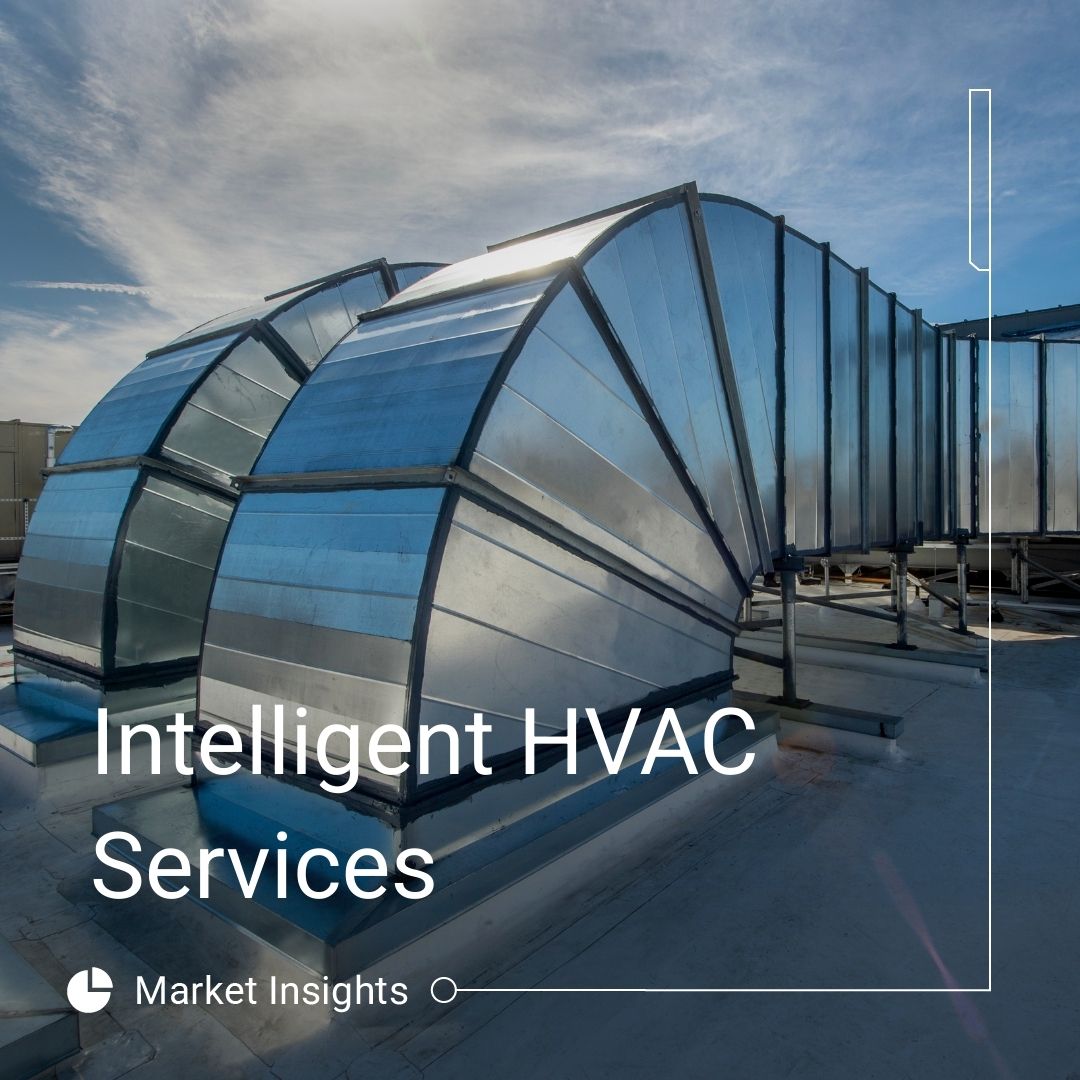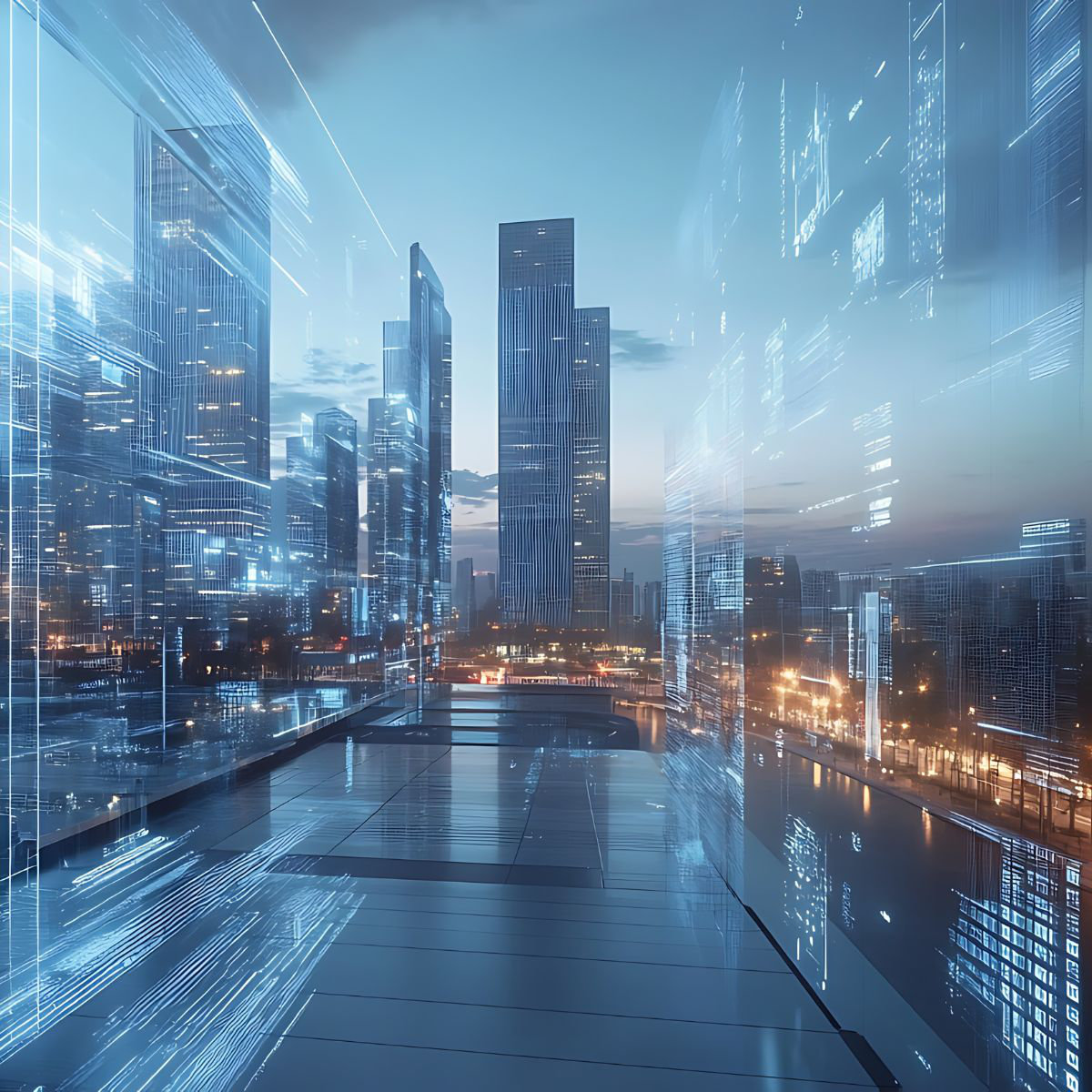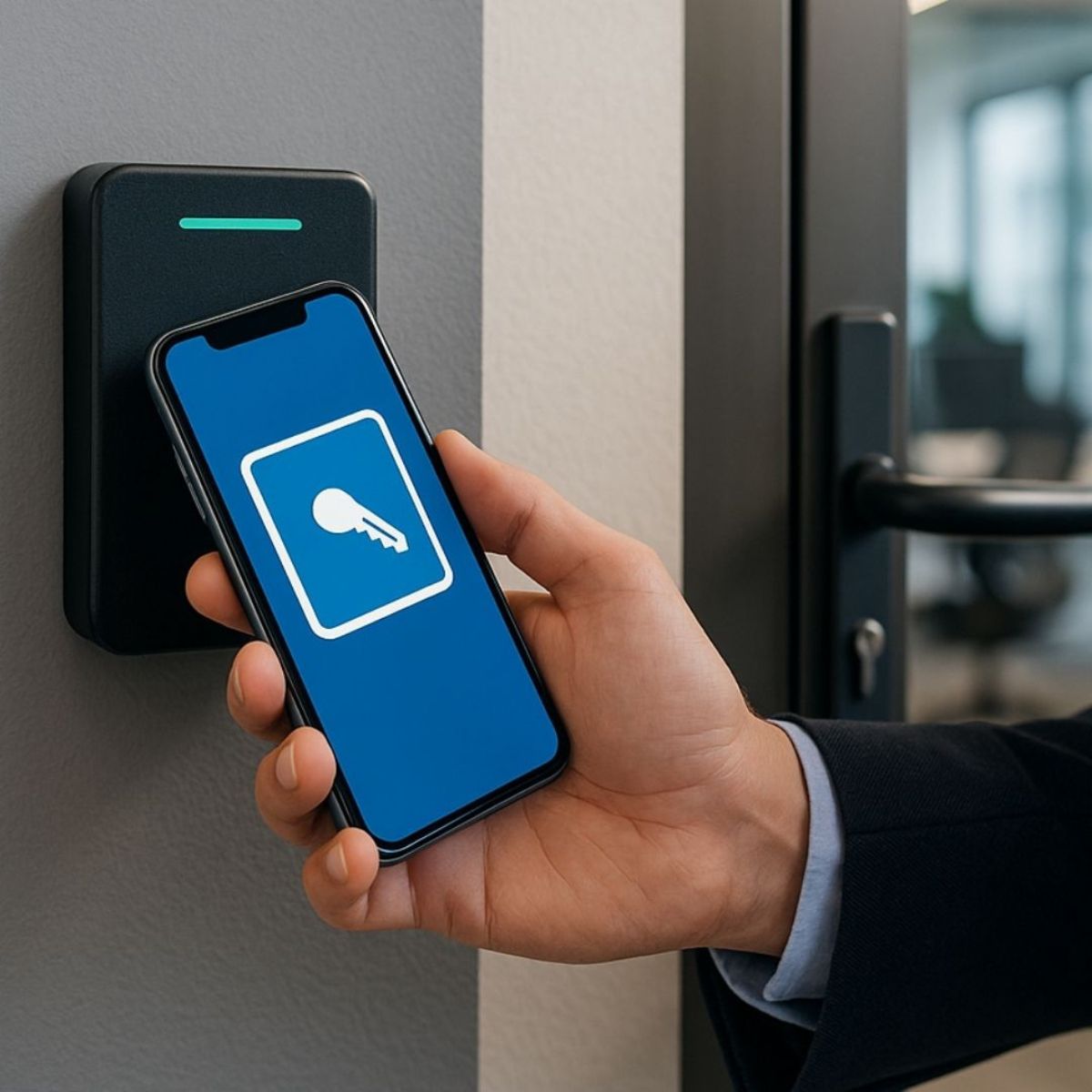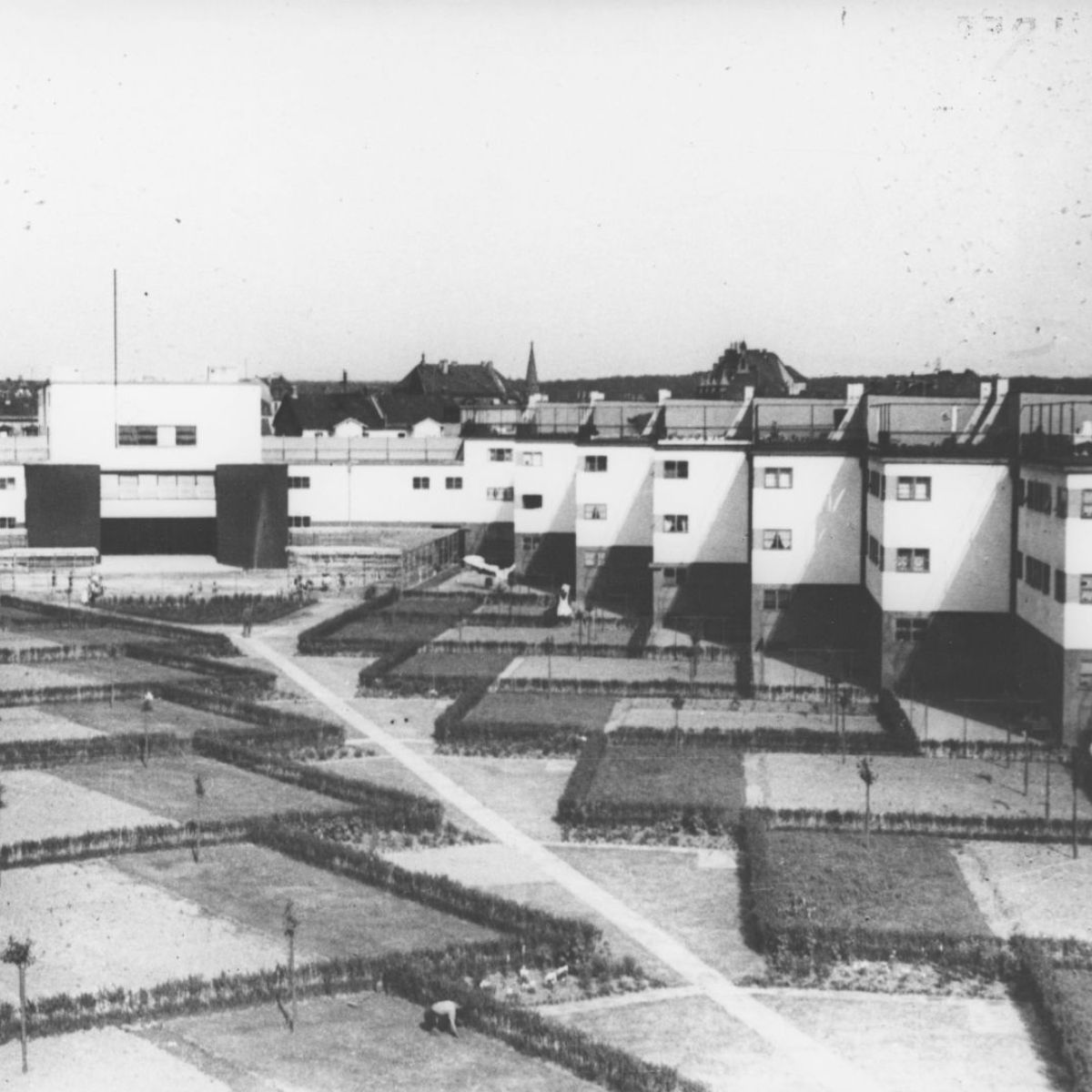Moderation: Marius Münkel (Messe Frankfurt)
Topic: Building planning & real estate management
"A shopping centre is the perfect laboratory for building technologies - a lot of technology is installed, it is a high-frequency property and this is rarely to be considered as a single entity, but rather as an entire ecosystem."
Robot "SPOT"
The globally acclaimed robot "SPOT" by robotics manufacturer Boston Dynamics is being tested by centre operator ECE Projektmanagement as a pilot project for use in large properties.
Read the entire podcast
7.000.000m² of sales area divided between 200 shopping centers European-wide. In addition, 4 million visitors are entering the properties day after day. These impressive figures are provided by the company ECE Projektmanagement on its website.
Our guest today is Christian Schlicht. As Director Center Management and Facility Management, he is one of the people at ECE who play a key role in ensuring that this operation is possible without any problems. And we are delighted that he has found his way to us from Hamburg - digitally, of course, due to Corona...
Moin Moin or as they say in Frankfurt: Gude Christian!
Gude, Marius, good to see you!
Christian, of course we would have liked to welcome you here in Frankfurt today. Unfortunately, the number of cases has interfered with our work, but we are flexible and can easily conduct the conversation digitally.
Today we want to talk about robotics in the real estate business. Christian, you are Director Facility Management and Center Management at ECE. You and your team ensure that center operations run smoothly. But before we get into this topic, we would like to get to know you a little better as a person, so I have five short questions, and I need five answers from you...
Yeah, sure, go ahead.
Dreamer or realist?
I am a realist.
Coffee: black or with milk?
With milk, but with oat milk.
Michael Jordan or Lothar Matthäus?
Michael Jordan.
Home office or office?
Office.
Then the last question - shopping, do you do it in a shopping center or online?
Of course you do that in a shopping center.
I almost thought so...
We already heard in the introduction what you do at ECE. Why don't you tell us again briefly - what is ECE's core business and what is your role within the company?
Yes, I'm happy to do that. Of course I’m often asked that question... Me and my team are taking care of the shopping center operations. In a very simple way: We make sure that the door opens in the morning and customers come in, and in the evening the door can be locked properly again.
So what does that mean? In the end, it's the entire value chain. That means: We make the budgets for our stakeholders, in this case the investors, who of course invest in the property. But we also do the budget planning for the rental partners who rent units from us. In this case, we are talking about operating costs and incidental expenses, among other things.
And then, of course, we take care of all the relevant issues that are necessary for operation - from cleaning to technology, since we have installed a lot of technology in the shopping centers. In other words, we ensure that the technology is properly maintained and properly tested. Simply everything so that our end customers feel comfortable and stay as long as possible in the shopping centers and feel well looked after. Something that, due to the current situation, naturally presents us all with great challenges at the moment.
You just mentioned it: You have different target groups or customer segments that you have to satisfy. Which customer group requires the most effort?
Well, of course this depends on the individual situation … Especially at the moment we are massively supporting our clients to keep everyone financially alive, i.e. with the lockdown at the beginning of the year and now, since yesterday, with the slimmed-down lockdown, our core business has been hit hard. Our rental partners also ask us why one store can open and the other has to close. That is of course extremely difficult in the current phase. With our department, we are trying to make sure that the costs that are always incurred in a property due to the operation are currently reduced to a minimum, so that it is just barely bearable. And we, on the other hand, also comply with the legal requirements and obligations.
What I can say in addition to this: I think our team has also shown during the Corona time that it was extremely important that we had already existing systems, existing tools at the start and that we could therefore quickly reduce the real estate operation to a minimum. And after the decision that we were allowed to reopen, i.e. the re-opening, that we dealt so well with our service providers that we were able to restart the real estate operations and reopen the stores.
Yes, that is our range of tasks, quite multifaceted...
Yes, absolutely, I would say that sounds like a great responsibility and a great effort above all. It's almost impossible to manage without digital aids, isn't it?
Absolutely right. Fortunately, we were able to successfully complete the SAP implementation before Corona. Perhaps a little anecdote... I always thought during my studies: Computer science? What do I need it for? I didn't pay that much attention. I should have done that. Because everything we do today has to do with computer science, with IT in general.
As I said, we've been implementing SAP for the last five years and I think we've done a really good job of implementing and training it, from the process model to the data model to the implementation. And digitalization is actually based on this. So, ECE has SAP at its core and everything that is added to the left and right is practically based on this ERP tool, SAP in this specific case.
You have also dealt with the topic block chain in the past, right? Now this is a topic that many people know from Bitcoin or from other online currencies. How can this be transferred to facility management?
Well, when I heard it for the first time, a good friend told me that she had read up on crypto currencies. My brother did the same thing and then I was a bit hooked and thought: crypto currency, what is that actually and where does it come from? And everyone knows Bitcoin from somewhere and then I thought, okay, what is the technology behind it? And, coming back to the history of computer science, I was thinking, how can I implement this DLT case, that is Distributed Ledger Technology - among other things, the block chain is one way of doing this - how can I transfer this to my real estate business?
Actually, in the last few years I have always tried to use existing technologies and systems to solve the problem I have in a specific case on the business level. And in facility management or real estate operations in general, we have a lot of rules, regulations, laws, standards and guidelines. You know how it is... We have VDMA, VDI, DIN standards or laws, standards, regulations down to the level of the statutes. That's why the Waste Statutes in Hanau are different from those in Frankfurt, because this is of course a local issue. That's why there is just the yellow bag for plastic garbage and the green garbage can and the other one has a blue garbage can and coincidentally another brown one.
That is of course very important for us, because we have 16 federal states in Germany, and then down to the level of the statutes the complexity of correctly screening this everywhere increases. There is a tool from Rödl & Partner called REG-IS - which stands for "Regelwerksinformationssystem" - and it gives me information about which regulations, i.e. laws, standards, guidelines and so on, are changing, so to speak. And I took this structure and integrated it into SAP. So, the technical equipment, such as the ventilation system, the smoke and heat exhaust system, etc., is now in the SAP system. (now speaking purely from the Light + Building world), I have the whole technology wired, so to speak, to the regulations, which then change.
And what does the Blockchain stand for? For manipulation security. That is, that information is stored on several computers and if one of them wants to manipulate it, then it is obvious because the hash values are compared with each other. If they do not match, it is obvious that something is wrong. And so I took advantage of this to digitize the process on the SAP master data basis and data model basis - from rule changes to documentation.
Let's play this out: the set of rules changes, in SAP we marry this with the equipment, the colleague on site - in Frankfurt, for example, in the Skyline Plaza - presses the button that the order is executed and then the service provider sends back the log, the maintenance or test log. We store the protocol in our document management system, we call it a property file, then we put the hash value on the document and write the export to the block chain.
In this way, we have completely digitalized the process, from the change of rules to the documentation. This has never been done before in this form in the real estate environment and we are therefore very glad that we are a step ahead.
Yes, sounds interesting in any case and has also brought other things with it, if I have understood it correctly. In the past, ECE was happy to start with pilot projects. For example, I remember a project with the company uvis, which involved disinfection with UV light for escalators.
With Cluster Reply as a partner you have now started an extremely exciting new pilot project - tell us, what is it all about?
Exactly, so the topic "Boston Dynamics SPOT" was added. We worked together with our technology partner who built us the block chain - quite frankly, Marius, I'm not a block chain expert either and had to get someone on my side who could explain it to me and also implement it technically. This is not quite trivial now and as I said, it exceeded my ability, but there are experts and that's how we started the race. The block chain case was a show case because I said we had to test it. Because only when you test it you can understand whether it fits or not. And so, in the show case, we showed you visually how something like that could look like.
The following came out of this block chain show case: Of course, ECE is testing a lot left and right, and there was a research project on the horizon and it was called "from BIM to Digital Twin", i.e. how we get from the BIM model into the digital twin. This was very well received because our data model, which we built, allows us to import everything from rule changes to documentation into the BIM model. And the idea, the next step, would have been to ask how I could display the property more intelligently... Because in the best case, the escalator or smoke extraction system would of course commission itself, it has the information in its stomach and knows that I have to be serviced or inspected in this and that cycle and then it could commission this itself via SAP - in the best case via a Raspberry Pi or IOT device, or whatever. That was, so to speak, the second step we took.
Then we got into a conversation with Reply, i.e. as part of the discussion. Such topics are a creative process. It only comes about when you have several experts present and can therefore discuss more freely. And there was the idea of saying, why don't I have a mobile IOT device that can run through the property and of course order certain things or provide the technical manager with information at an early stage?
The real estate is usually quite large in such a shopping center, we have 30, 40, 50, 60,000 square meters of space to manage there. It's the same for you on the exhibition grounds - a lot of time goes from one gate to the other or from one hall to the next... and in order to act more proactively and at an earlier stage, we discussed use cases in the discussion to see what a robot can actually do.
Of course, we already had the classic topics such as cleaning robots in our mind. You may know this from your private environment, a lawn mower or vacuum cleaner/wipe robot. These are such nice little helpers that do simple jobs that you don't like to do when you're not at the start or at work.
So we thought about it and got in touch with Boston Dynamics. They really liked the use cases - we called it the multi-use case approach, in other words, a multifunctional use case that combines several use cases. They liked the approach and said that we are in the "early adopter program". And that's quite an elitist story in this research project, so I'm particularly pleased that our ideas are also being taken up there.
I think one can say "welcome to the future"!
How exactly can one imagine this now, i.e. the use of SPOT? Is it already running somewhere?
Yes, it is already running and it has been running for quite a while. But since the project hasn't progressed quite as far as we did, I'd like to summarize briefly what our goals were and where we are in the project right now.
As I just mentioned, we have quite large areas and a lot of issues to deal with in the property, so we need to be proactive in knowing what is happening. Let me lead you to the first use case. Very few people know this, but ECE also manages many parking garages, and of course that's the way it is there: a parking garage ages on the one hand, but on the other hand it is also subject to a lot of wear and tear if it is highly frequented. This is where damage occurs, and of course you have to recognize this early on. And the sooner we detect them, the sooner we can reduce the extent of damage, replace components or the pavement, etc., so that downtime does not occur. You can imagine if parking revenues fall away because we have to close a parking deck, that's not really good for the economy.
The earlier we can detect the damage there, the earlier we can react. In this case, the Boston Dynamics SPOT - imagine it like a multifunctional Swiss Army knife - I can attach anything to it, sensors or additional sensors, various things, I can even attach a gripper arm to open doors... we haven't done that yet in this case, but what I'm getting at is that the SPOT is fed by images of us. We show him what kind of damage can occur in such a parking garage. We have such expert test reports, which are accompanied by a photo documentation, and we take them and play them, figuratively speaking, into the SPOT's brain. When he walks across the parking deck, he scans the surface with his cameras, with his sensors, so to speak, and compares it with the images that we have given him.
That is already pretty cool, because it concerns static topics, around stability, it concerns traffic safety obligations. That helps us immensely, of course, because people, our colleagues from the technical department, of course they also walk on the parking deck, but of course they don't have X-ray vision and see where potential damage could occur, they only see that when the time comes. So this is the one use case.
The other use case we have is: We also have many side passages. You have to think of it like this: the logistics in a shopping center do not take place in the mall, but always in the back areas. And there it is of course also important whether there are objects stored that represent a fire load, for example. So what we also did is: We let the SPOT run through the aisles and it scans whether the fire extinguisher is on site or not. If it's not on site, the Technical Manager gets a push that he has to check there again. If it is on site, the fire extinguisher is also checked - so it is scanned whether the test badge fits or not. These are also very important issues. After all, how often do you run past a fire extinguisher in a hotel or in public areas and think: oh, it should be checked or is about to expire. These are also topics, which can be supported thereby.
And the third use case is pretty much the most complex of the three. I just mentioned that we are working on the BIM model and also 3D models, i.e. the digital twin. And of course, in a shopping center like this you quickly have 100 or 200 store units in it, and the property is not that immobile. There is always a tenant moving in or out, or people moving in or out, or there's a special offer somewhere in the mall, or the Christmas decorations are coming, or whatever... Of course, it's important for us to always have the most up-to-date planning material. And the idea now is, as you saw in the video, that SPOT has a so-called LiDAR sensor on its head, a LiDAR application, and that makes it possible for us to keep the 3D model of the property up to date. So when the robot walks around on the parking deck or through the property, I actually always have the most up-to-date data, because it actually measures it and compares it with the latest version.
This helps us of course and it puts us miles ahead, because you always need space and information in real estate operations. If they are of course up-to-date, then there is already a great added value.
Absolutely, yes, many a science fiction movies become reality, that's what it sounds like.
Of course, some might ask themselves now: Are machines starting to replace humans now? And do many a facility manager now have to fear unemployment? What do you think?
That is of course a question that I had hoped for. Of course I asked myself the same thing at the beginning. What kind of worries and fears can it perhaps trigger, because it's already a cut, also a cut in the job. But I can answer this question with complete peace of mind, because we are not going to replace anybody with it, it makes no sense from our point of view. But it is important that we give our colleagues on site the time to take care of the essentials.
I just mentioned that if you are at work and the lawn mower robot or the vacuum cleaner robot is driving around at home, these are activities that you don't actually have to do, they can also be automated. And they give you the time to concentrate on the essentials. And now the analogy to the center: we currently have an extremely high demand for helping our customers, in this case the rental partners and also the end customers, and of course the investors, and we need more time for that. Of course, we can do this by supporting activities that take up a lot of time on the one hand and are perhaps handled more efficiently on the other. That is the idea.
And it will also be the case that we want to start with it for the time being, because honestly I can't tell you whether it will be 100% effective with the use cases as I have now defined them. This is now a kind of research project and this gives us the opportunity to generate early findings and then decide: does it make sense to implement this or not. I think this is very important to emphasize once again.
Interesting that you just said that. We have already recorded a podcast with Chris Boos, he is a member of the Digital Council of the Federal Government and also an expert on AI and he shares this opinion. He says it's a) the question, what do I want to automate? Some things you might want to leave in human hands. And b) it makes room for things that you might not have had time to think about before.
Now SPOT is going to work in an already existing property. Let's take a step back and assume that you have a new project lined up, for example a new building or the conversion of an existing center complex... Real estate is an absolute cross-sectional topic - you can see that quite clearly from our trade fair portfolio in the Building Technologies area. E2 Forum (elevators & escalators), ISH for sanitation / heating and air conditioning, Light + Building for building services engineering and lighting or Intersec Building for security technology - all these things have to be taken care of in the building context.
How do you proceed here in terms of innovations and the selection of potential suppliers?
Well, with us it's like this, especially I have a certain affinity, a certain weakness for, but you've now found that out... I think what's incredibly important is that you constantly ask yourself whether what you're doing is actually sustainable. And of course it's part of it that you always have your finger on the pulse of time on the technology side. Personally, I always make sure that we have a kind of screening in the proptech market and say, okay, which proptechs are there? Which start-ups deal with real estate related issues? And it was especially important to us at ECE, that we don't make a "closed job" out of it. In other words, that we say: "now we'll fiddle around on our own because we know better".
On the contrary, we have initiated a cooperation with Bosch, Bosch Connected World. And that was called the Smart Building Challenge. We also openly dug up topics where we said that we needed an external opinion on the issues. So we defined use cases where we said there was always a bit of pain in operations, and we had start-ups pitched in on them in this Smart Building Challenge. It was really interesting to see how this external view produced completely different ideas. And also how the start-ups joined forces and said: I can't do it alone, but if I cooperate with the other start-up, I might be able to solve this use case or pain point.
As I said, we are very open and offer a great playground. I mean, a shopping center like this is the best laboratory you can have. Because: There's a lot of technology in it and we have - unfortunately not right now, but before that - of course a lot of frequency, it's a high-frequency property where you have 150,000 people walking in and out at peak times, just so that you've heard a number. So you find out relatively quickly whether something works or not. And on the other hand, it is never solitary. It's like the Skyline Plaza in Frankfurt, there's an office tower on the left, a living area on the right and maybe a spa. So you always see a complete ecosystem or cosmos and that's pretty cool. That's why we are always very open when it comes to innovations, start-ups and cooperations.
Let's take another look into the future. What do you think, in 10 years, will we have gotten used to robots in our shopping malls?
Well, I think so. Of course, the technical possibilities are already there and by then we will have gained experience. Let me take another step back again. As I said before, what we already know in the private context will also be the case in the real estate sector especially in the commercial real estate sector, too. It will be like that, I am firmly convinced, that we will have several robots in real estate as well. Be it in a shopping center or in an office building. There you have the cleaning robot, there you have the SPOT and maybe there are other possibilities to use the robotics.
And my vision, or my firm conviction, is that one simply enter orders into the portal and whether the cleaning robot then updates the 3D or BIM model or the SPOT, it makes absolutely no difference. We're more likely to go into this so-called "swarm robotics", meaning that multiple robots can collect data or perform tasks in the real estate, real estate context, which now helps us to give our customers a completely different kind of attention, to spend more time. That will definitely be the case.
And, I also firmly believe that we will immerse ourselves much more strongly in this ecosystem thinking in the real estate sector. What does that mean? As I just mentioned, real estate is never seen as a solitary entity, it is not a proprietary system right now. Rather, it will be the case, also with regard to climate change, that we will produce the energy we need locally. We will produce it where it is consumed and where it is needed. And so it will also be that we will outsource facility services, cleaning, monitoring or technical hard services locally and offer them in a standardized way in the ecosystem, in the form of a marketplace.
I regard this as a vision of the future for the coming years...
I think one can be curious in any case. Christian, thank you very much for the interview and that it has now also worked out so well digitally. I'd say that we'll maybe catch up again physically, maybe even with the first findings, when the SPOT has been running a little longer at your centers.
I hope you at home, dear listeners, enjoyed it and you were able to take a little bit of our conversation with you. If you want to stay up-to-date, please feel free to check out the social media channels of the Building Technology Experts - on Facebook, on LinkedIn, on Instagram.
All that remains is for me to say: stay healthy, stay excited and stay tuned!










